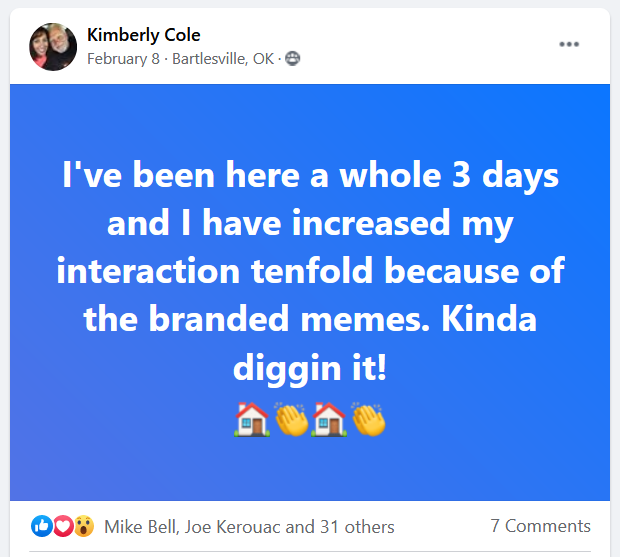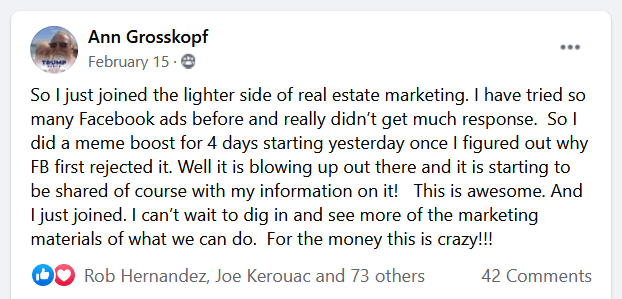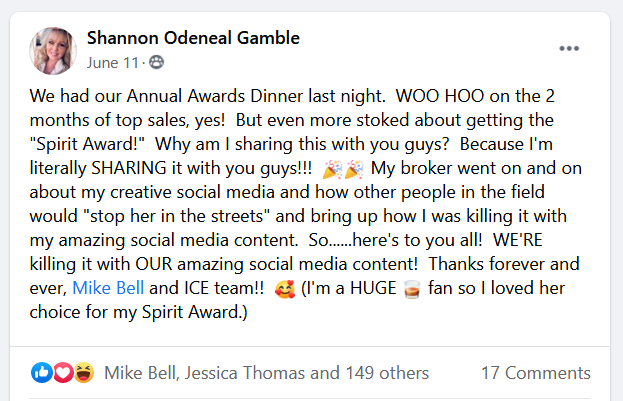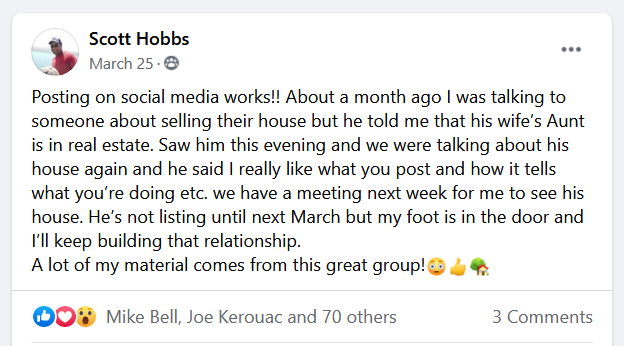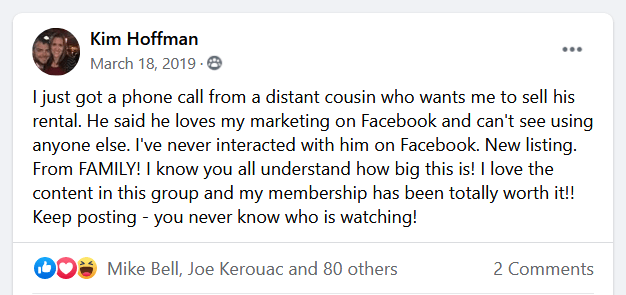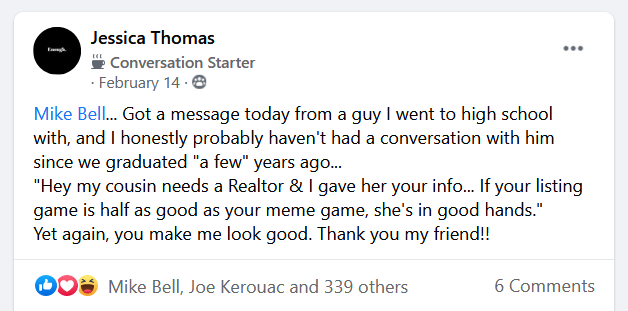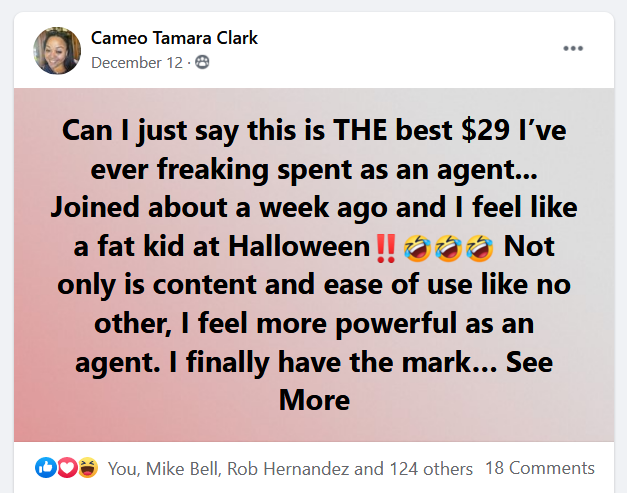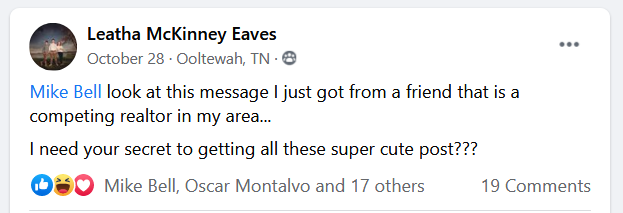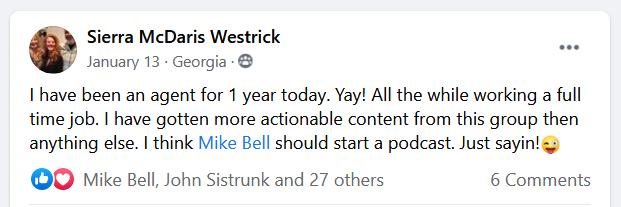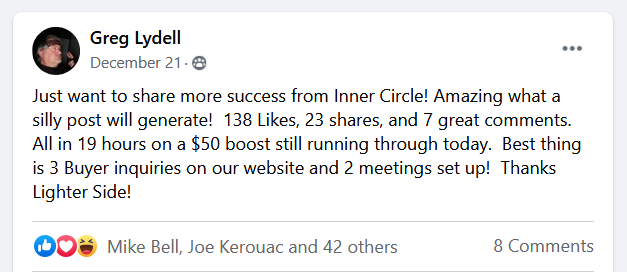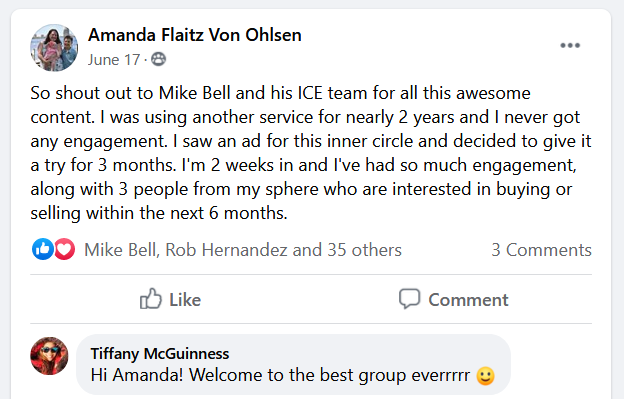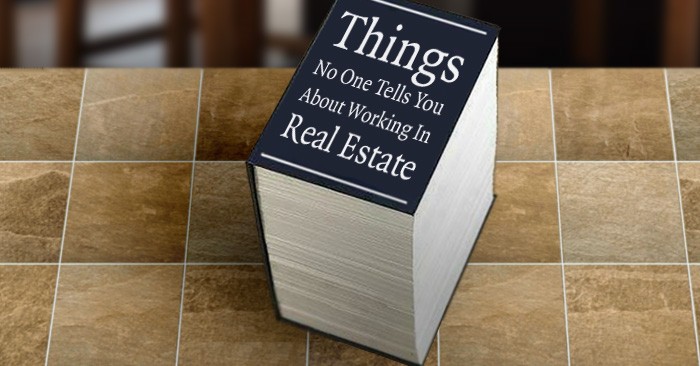
12 Things No One Tells You About Working In Real Estate
Congratulations! You’ve selected a highly rewarding, super lucrative, and totally fun career in the oh-so-cool field of… real estate. If you’re brand new to this


At this point everyone knows not to fall for the email from a Nigerian prince promising to share his fortune with you if you just send him your banking information. After all, that scam has been around almost as long as the Internet has existed, and most people have seen it at least once!
But people don’t buy or sell a house all that often, so real estate scams and shams can be easy to miss to the untrained eye.
So let’s take a look at 5 things you should be leery of as a homebuyer or seller that may be an outright scam, or just something that’s not quite as promising as it may appear to be, so you know what to look for and can avoid them.
When you buy or sell a house, there’s a good chance that a title company or attorney will be handling the closing. So it wouldn’t be all that weird to get an email from them asking you to wire money for closing costs, the down payment, etc.
However, there’s a scam where someone hacks into the system of those types of companies and gets the details and email address of the client. Then they create a fake email address that looks like it’s coming from the title company, and instruct you to wire money to their own account.
The good news is that this will only be something you need to be concerned about when you’re in the middle of a real estate transaction, and will have real estate professionals in the mix at that time. And real estate pros are very aware of this, so they’ll most likely advise you not to send money without verifying that they sent you the email and instructions, and double checking that you have the correct info. But just in case they don’t, make sure you reach out to verify before sending money.
This isn’t so much a scam as it is a potential sham. To be fair, there are people and companies out there who are interested in buying houses as investors, and will pay you cash for your house. They may even pay you a fair price. But probably not…
Whether you’re sent a “handwritten” letter that looks super personal and specific, or just see one of their signs on a telephone post, be leery of the offer to buy your house for cash. There’s always a catch.
The solution to avoid being taken by someone making this offer is simple: Enlist a local real estate agent for their advice and expertise. A pro can help you determine how much your house is worth, review the details of their offer, and help you determine whether it’s legitimate and worth taking.
Almost every buyer and renter uses the Internet to look for places to buy or rent nowadays, and there are tons of websites where you can find listings. But Craigslist is one you need to be careful with, because scammers have been known to create fake listings.
They don’t look fake, because they usually find a current listing on one of the many legitimate listing sites, and then duplicate the listing. But the catch is when you reach out to the poster with interest, they hype up how much other interest they have, and then ask you to send a deposit in order to secure an appointment to even see the place.
That’s a huge red flag, and it’s easy to avoid if you know this happens. But they’re preying on the unaware and the emotions of someone desperate for an opportunity. Even if it looks like the house of your dreams, or deal of the century, don’t send anyone money to set up an appointment to see it. If you do, the chances are they’ll disappear the minute your money clears, and you’ll be knocking on the door of someone who probably had no clue their house was even used in an online scam.
This is by no means a scam, but it’s certainly not as reliable or accurate as you might think it is.
It’s so appealing and easy to type your address into the search bar of a website and get the value of your house in an instant. It’s even more appealing when that value is higher than you imagined it would be!
But the truth is, any site that offers a free online valuation of your home is probably not accurate. They probably even have a disclaimer that tells you it’s not accurate, instead giving you a range of how far off it could be—and it can be wayyyy off.
These sites use algorithms that take some broad information and spit out an estimate without knowing the details of your home, area, or current market. They’re fine to use for entertainment and a general idea about the value of your house, but rather than have a misleading sense of your home’s value, you’re better off asking a local agent to do a market analysis for you.
Real estate professionals know the current local market and can come and see your house in person, which helps determine a more accurate value than a website can compute from data alone. Most agents are more than happy to do one for you for free.
If you’re running behind on your mortgage payments, there’s a good chance you’ll start receiving letters and phone calls from people and companies who want to help you avoid foreclosure.
They may offer to help you negotiate with your bank, or help you do a short sale. Or perhaps they’ll try to convince you to sell your house to them at a discount, and they’ll let you stay there while you rent it back from them until you can afford to buy it again. It could come in all sorts of forms, but whatever help is offered is likely a scam.
It’s a stressful time when you’re behind and facing the loss of your home. And it can be embarrassing. So when someone reaches out who seems to understand and wants to help, it can be an appealing option. But you’re better off being the one who reaches out to someone you’ve researched and vetted—like an attorney or real estate agent you trust—and ask them to help you figure out your options.
Now that you know those real estate scams and shams, you should easily be able to avoid them. But there may be others or new ones you come across! So the best advice is to always consult with a trusted agent, attorney, or other industry professional before you make any real estate decisions… but especially when something sounds a little too good to be true, or even the slightest bit weird to you.

(Shh, our secret)
Show your sphere your an expert. We have over 2100 articles covering every real estate topic your audience will love.
Position yourself as a real estate authority!
Real estate + topical events — the perfect match!
Become the bearer of good vibes!
Because hey, everyone loves to laugh!



Get our weekly email that makes communicating with your sphere on social actually enjoyable. Stay informed and entertained, for free.

Congratulations! You’ve selected a highly rewarding, super lucrative, and totally fun career in the oh-so-cool field of… real estate. If you’re brand new to this

Customer Relationship Management (CRM) systems are a necessary evil for real estate agents. Ideally they’ll make your life easier, keep you organized, and help you
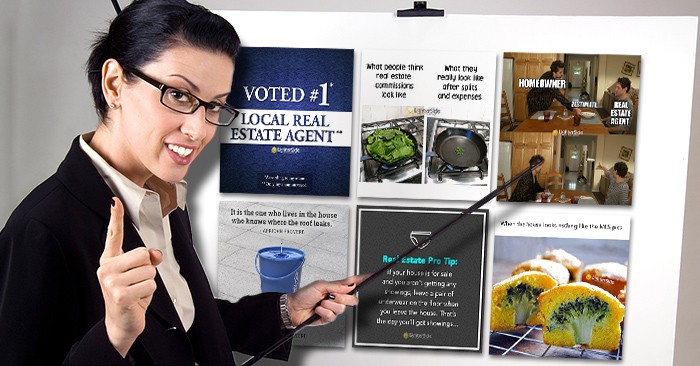
Landing yourself a listing appointment is hard enough, but then you still have to nail your presentation in order to walk out of it with

Let me take a stab in the dark here… You feel your company is the greatest, and everyone else should join too. Am I right?

Ideally, every client you work with would write you a heartfelt, glowing review…without being asked. But, alas, most don’t. It doesn’t mean they wouldn’t. But
Depending on your situation, it may not take the full 30 minutes.

This reset password link has expired. Check the latest email sent to you.
